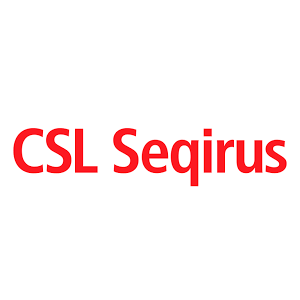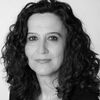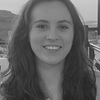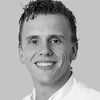Essential skills and career prospects for early career scientists
Welcome to ESWI Airborne, the podcast of the European Scientific Working Group on Influenza. In this episode, we explore essential skills and career prospects for early career scientists as part of our three-part series on life as a scientist.
Joining us in this podcast are three remarkable guests:
Meral Akcay, a global influenza expert and former ESWI board member, who discusses her transition from academia to the pharmaceutical industry and the key skills that have propelled her career.
Lucy Mosscrop, a passionate science enthusiast and PhD candidate at Imperial College London, focusing on RSV research. Lucy shares her aspirations and the valuable skills she has found beneficial throughout her journey.
Marco Goeijenbier, an ESWI board member and clinician with a dynamic career in research, who emphasises the importance of curiosity and mentorship in navigating the competitive landscape of scientific careers.
Together, they will delve into their unique journeys, the challenges they face, and the advice they offer to those just starting out in science. Whether you're a budding scientist or simply curious about the field, this episode provides a wealth of knowledge to guide you on your professional path.
Aida Bakri: 0:00
Welcome to ESWI Airborne. In this series featuring our early career scientist community, we will talk about life as a scientist. This series is made possible thanks to the kind support of CSL, Seqirus and Sanofi.
Clare Taylor: 0:32
Welcome to ESWI Airborne. This is the podcast of the European Scientific Working Group on Influenza, otherwise known as ESWI. I'm your host, Clare Taylor, and this episode is one of a three-part series on life as a scientist. Today's episode is all about the essential skills and career prospects for early career scientists, so this is super useful for anyone who is starting out on this challenging and rewarding vocation, and I'm very happy to welcome to ESWI Airborne three scientists to tell us all about this grueling lifestyle. Global influenza expert and former ESWI board member, Meral Akcay. Welcome, Meral.
Meral Akcay: 1:16
Thank you.
Clare Taylor: 1:17
Next up we have PhD student at Imperial College studying RSV and a member of ESWI's Early Career Scientist Network. Hi, Lucy, Lucy Mosskrop, how are you?
Lucy Mosskrop : 1:28
Hi, Clare, really happy to be here. Thank you.
Clare Taylor: 1:31
Awesome and welcome back to ESWI Airborne Marco, ESWI board member, clinician researcher and all-round superman, Marco Goeijenbier, how are you?
Marco Goeijenbier: 1:44
I'm doing fine. Thank you very much. Always a pleasure.
Clare Taylor: 1:46
So let's start by getting a sort of snapshot of where each of you are at in your life journey as a scientist. Meral, let's start with you. You've worked for Sanofi since 2018. What is it that you do there?
Meral Akcay: 2:10
In fact, I've been working at Sanofi since 2014 in the region and now I'm at the global. What do I do here? I do many things, which include to bring my expertise on influenza to medical teams, to guide internally the decision-making processes on the products and to make sure that the right information goes internally to everybody so we can establish also a trusted relationships with all the stakeholders who are there to prevent influenza globally, so that we can have a good and strong collaboration. So anything that is related to medical influenza, I am involved in the company. It's very broad.
Meral Akcay: 2:52
Let's put it that way.
Clare Taylor: 2:53
Wow, that sounds super interesting. So do you travel a lot, do you talk a lot?
Meral Akcay: 2:57
Exactly, I do travel a lot, I talk a lot, I talk online and I'm present on social media, talk a lot. I talk online and present on social media, but then I'm also invited to go from one country to another to talk to either a pharmacist, the medical community or even the policymakers, to really try to see the common ground on how we can collaborate with each other to be able to fight against influenza effectively. I mean just like bringing all the ties together science, the scientific community, the medical community, policymakers, and then of course, you have to have the manufacturers that make the vaccines right. So I am really trying to put all these ends together so that we can function properly for like the best results possible for the public health.
Clare Taylor: 3:47
Okay, cool. And what year were you awarded your PhD?
Meral Akcay: 3:51
I think, it was in 2011,. I got my PhD and right after I was also, I received my associate professorship at the same university in Istanbul, and I was working, of course, on influenza viruses and established influenza surveillance at the same institution. And my lab was the National Influenza Reference Lab, in fact reporting to WHO.
Clare Taylor: 4:16
Okay, great. So, along with Marco, you're one of the younger ESWI members or former ESWI member, I should say, Marco, you earned your PhD in 2015. You're one of the youngest but probably one of the busiest ESWI members, and that's saying something for a very occupied group. So your side hustles include chair of the influenza diabetes community, editor-in-chief for Nature Springer, tropical diseases, travel, medicine and vaccines. Is it even possible for you to describe in 30 seconds what you do?
Marco Goeijenbier: 4:49
I'm currently working at Sparren Hospital in Haarlem and Hooftorp, two cities relatively close to Amsterdam in the Netherlands, and I'm still affiliated with the Rosmans Medical Center in Rotterdam. So let's say 60% of my time is currently spent working in intensive care as a clinician and supervising residents. The other 40% is shared between research, supervising PhD students and a research group which I co-lead with Steven van Lelyveld. He's a very smart, very structured internal medicine specialist who helps me keep our projects on track and on schedule, and I've got some ongoing projects with Erasmus also, students I co-supervise there also in line with my work as an editor and the time needed for board duties, such as for ESWI Sirion Foundation and our own hospital staff, where I serve as the chair of science and education. So that's in a nutshell, though.
Clare Taylor: 5:33
Lucy, so you're working towards your PhD at Imperial College in London right and focusing on RSV research. How did you get mixed up with this ESWI crowd of people?
Lucy Mosskrop : 5:47
Yeah, so I'm in the final year of my PhD and last year I applied to a travel grant to come to the ESWI influenza conference in Valencia and I was awarded the travel grant and able to come and give a talk, and that's how I ended up mixing with everyone from ESWI, which has been great. So I'm actually in the final four months of my PhD, which is quite crazy to say. And yeah, my major research focus is RSV, particularly the RSV fusion protein or RSVF, and I'm interested in the impact that immunization through vaccines, through monoclonal antibodies, will have on the F protein. So largely I've been trying to set up a genotype phenotype to study this. So much more, much less going on maybe than Marco and Meral, but still got a PhD to do.
Clare Taylor: 6:36
What do you see as the next steps? And like, how does it feel listening to what these extremely busy people have to say. You know, what do you think about? What lies ahead for you?
Lucy Mosskrop : 6:47
It's always like quite a scary question to ask someone, like in their PhD. I'm not entirely sure at the moment. I think it's a really exciting time to be researching RSV. You know we've got the vaccines and monoclonals coming out that we've waited a really long time for, so I think I would like to stay in RSV research. So I'm currently looking for postdoc positions for when I finish my doctorate. But I think beyond this it's a bit unclear. So it's good to hear from the others about you know there are lots of different routes you could go down. You could do different things, you can do multiple things, yeah.
Clare Taylor: 7:26
Well, it's all to play for, I suppose. What are the skills that you've found most useful so far?
Lucy Mosskrop : 7:35
The one that came to mind is probably quite cliched, but resilience has been quite a key skill. So one of the main methods I was trying to set up as part of my PhD has taken sort of a year, year and a half to set up. So it was a lot of failure, troubleshooting, and I think that can be quite demotivating. So you've got to learn how to deal with that and I think generally in science you have to deal with failure a lot. I know a lot of people that have had to go through lots of processes in order to get onto a PhD program. Then papers get rejected, experiments fails, you don't get grants. I think it's part of the process that you have to sort of learn how to deal with that. And yeah, it's quite difficult.
Clare Taylor: 8:24
That's a really valid point because, you know, early on in this podcast series, I was struck by the parallels between, like the life of a creative artist and a scientific researcher and having to deal with, you know, rejection and really stay consistent. Meryl, how about you? What do you think the most useful skill is? Something you were born with or something you developed in the course of things?
Meral Akcay: 8:50
Please allow me also to complement what Lucy is saying when you're in science you're very focused, you're focusing on your exact research area and your knowledge is quite deep in the area, and then you learn how to be resilient. I think also in today's world, looking forward, one of the most important skills a scientist should develop is also a communication skill. You might be doing the great science yes, publication is one communication but then if you want to bring your great science to any community, any community, then you have to be a great speaker. You really have to learn, you have to really develop how to speak publicly and how to also be like a very good technical writer, even if you come to the companies to work, for example. That will be one of the biggest assets, I think, in the company.
Meral Akcay: 9:56
The value that I bring to the company, in addition to my work on Influenza, is that I'm also like a natural person really. I, you know I just act myself and I care about others. That's for sure. And I think I have learned or it comes a little bit innately, but then you can also learn really how to you know be genuine with your audience and how to think about your audience when you're talking about something. So like am I really bringing the message to my audience? Is this what they need? I think this is something that we struggle, like in the company. I struggle to find great scientific speakers for my educational sessions I am responsible for. Like education in the company, I really do struggle, so that is really a big asset. Any young scientist working on any topic, please develop your presentation skills and technical writing skills.
Clare Taylor: 10:54
And that's really true. It's something that you can get a lot better at. I've seen people get an awful lot better at public speaking through training and practice. Marco, I'm tempted to second guess that time management may be one of the skills that you've developed, but what ?
Marco Goeijenbier: 11:12
Yeah, time management or responding very well to caffeine is also a good one, but no, I think one of the most important skills there is also be a real team player. So it's not about competition. It's about the team seeing solutions rather than problems and, of course, finishing projects. So being a perfectionist might not about competition. It's about the team seeing solutions rather than problems and, of course, finishing projects. So being a perfectionist might not be ideal, although I do like to work with perfectionists. I'm myself absolutely not a perfectionist but you do need to finish projects, though. You need you need to finish.
Clare Taylor: 11:40
It's really comforting to hear you say that about being a team player is important, because it seems to be so competitive, like really so difficult to get established as a research scientist and many, many more candidates working towards their PhDs than there are postdoc researchers, and I hope that doesn't freak you out. Lucy, that's okay to say that. I have no doubts that you will be one of the ones that makes it over the bridge here. But what else can one do? What are some of the other career options for early career scientists? Like what's the sort of map that's out there?
Marco Goeijenbier: 12:19
Well, there are loads. You know industry needs smart people with a strong scientific background. Education system can really use a higher representation of people with a strong biomedical background. But also in politics this is definitely needed. Take the current Ampox vaccine debate in the Netherlands, where we do not want to send vaccines to the places where they actually need it because population wins that from people with a scientific background. And I think in the future, if we leave a bit the competition behind, it gets way more combined pharma, industry and science. There's a brilliant thesis from Anne-Fleur Langendijk. She's currently working for Pfizer and it's actually on this science and scientists and industry working together being all on the same team. And I think that's something we've learned from the pandemic that actually only when we work together we can move forward, and this comes with a lot of jobs for everybody with a strong scientific background.
Meral Akcay: 13:18
I couldn't agree more with you, marco. Really I consider this as a loop. Somebody has to do the scientific research, come up with good ideas, new ideas, and that is the scientific community. Of course the pharma do have their own research labs, but that research lab would mostly be focused on current strategy. But then the new ideas should come from the scientists, so that that loop, you know, the scientists bring the information, and then the policymakers and then the manufacturers, so that you close the loop and then in the end you have a product, be the vaccine or a drug, so that you can bring help to the people who need them more and more.
Meral Akcay: 14:03
Very highly skilled scientists really to bring that into the companies also to come up with new ideas, of course in the companies, so that we can meet the needs. Of course, you know thinking the manufacturers also will make money, but that's, you know, that's part of the business, let's put it that way. But then we would like to, you know, get the best science so that we can get the best products out to the people who need it. We are people too, right? So we need to really have that coordination all together.
Clare Taylor: 14:47
That science and policymaking indeed that is a really important point and Meral you said that multitasking was one of the points for moving from academic to Sonafi which you know is indeed a global pharma industry player right? And what else did you have to learn to do differently?
Meral Akcay: 14:58
I guess I needed to. I mean, multitasking was one of the most challenging really. Like you receive hundreds of emails sometimes per day, and trying to learn how to prioritize and manage your time. That was something I had to really learn and I'm still actually learning, because in academics we have, you know, like we focus on some things, but here you have like a like a matrix that you have to be able to work with. And then also, because it's a company, it doesn't mean that everybody has the same opinion and you need to be able to lead your idea and buy people in to believe in your idea.
Meral Akcay: 15:40
This is challenging and I learned that you have to do it. It's not only telling your manager I have a great idea, had to do it. It's not only telling your manager I have a great idea. You need to really like buy a lot of other people from the other functions to make them believe that you have a good idea. Sometimes, very good ideas can get lost because you didn't know how to bring people in to support you.
Meral Akcay: 15:59
This was something challenging that I learned in the company. But, as I said again, like multitasking, you know being able to do much work with other functions, like public affairs would come and ask you something, the marketings will come and ask you something as the medical. So if you have that strong medical background, then you would be able to direct a lot in the company and change a lot in the company as the medical, a lot in the company and change a lot in the company as the medical. And also to understand you know that this is, you know this is a big company and the companies have strategies and you need to really like zoom out of your research.
Meral Akcay: 16:39
I was working on influenza genetics and then you know the resistance and antimicrobials and all that. But then you have to zoom out and also see that there's the policymakers, there's regulators. How do they work? How do they connect with each other? To understand all of these was a challenge, but like a learning experience. Then everything makes sense Science makes sense, policy makes sense, the manufacturing makes sense, patience makes sense. When you tie all of this together, I was not really aware of many of these when I was doing my, my research, confined in my lab, really.
Clare Taylor: 17:17
OK, so it's a bigger vision and really you are working at the global level. So this is a big vision. And I mean, how much of this stuff is kind of planned or anticipated? Like Marco, did you see it coming, all these projects and activities? Or is it simply where your curiosity led you to, or you know what did you? Did you see it coming?
Marco Goeijenbier: 17:42
Well, I think that that's a very difficult question, claire, to start in the Netherlands. Getting into medicine is like a lottery, and when I was 18, I liked cooking, I liked the Dutch language, I liked medicine a bit or history, but by luck or chance, I get into med school, and from there it's been an amazing journey, but it's also one shaped by serendipity the one paper gets accepted, the one doesn't. You get that grant or you don't, and also the job situation for medical specialists in the Netherlands isn't that great, so you move from temporary position to temporary position, but then your personal life also evolves. You get children. You get kids.
Marco Goeijenbier: 18:15
I got a partner, also with her own career. The thing is, though, I always give 110%, and I'm someone who finds it very, very difficult to say no to some people or to some things. Some would say that could be a lack of focus, but, on the other hand, it's working out quite okay. It got me on this podcast, so, uh, so I do a lot, uh, but but also a lot of it is just luck, or.
Clare Taylor: 18:37
I don't think you give 110 percent, it's probably some much, much larger um figure, um. Lucy, did you have any important mentors or role models? I mean what Marco was saying about luck and who you meet along the path like was there anyone that you can think of that has really inspired you or continues to inspire you now?
Lucy Mosskrop : 19:01
I think so far a lot of my journey at this stage has sort of been luck as well. Um, I've sort of stumbled between things. Um, before I got the PhD position I actually like sort of left science for a bit. I was working in a pharmacy for a year, um, and that's when COVID happened and then through that I ended up getting back into research. I was doing COVID testing at Imperial and then it was just through talking to people that I found my current PhD position and I think it kind of goes without saying.
Lucy Mosskrop : 19:36
But my PhD supervisor, professor John Tregoning, he is a really great mentor role model. He obviously has his own group, but he's also, um really enjoys writing, he's a published author and he's really good at sort of advising us. But also he really promotes like a work-life balance and encourages us to develop our other interests and just be like a whole well-rounded individual um. But I think day to day I really find my lab mates to be really important role models. You know I was saying that a lot of things have failed and there's been a lot of troubleshooting and things like that. And having other people at a similar position as you that you can go and chat to is just really, really important. And sort of on that same pathway, I guess the ESWI Early Career Scientist Network has been really really great as well. You know, I met so many people in Valencia that I've become really close friends with and we've been sort of chatting on and off about our research and our lives and I think that's been really important.
Clare Taylor: 20:45
That's lovely. Thanks a lot for sharing that. I find that really heartwarming. Actually, Meral, how about you? Did you have anyone on your horizon that you thought I want to be like them, or was there anyone that was really important in your career development?
Meral Akcay: 21:00
Yeah, I guess, like both Marco and Lucy mentioned about luck, I don't know whether I mean after we are born, whether we call them like luck. If we are born to like a family who encourages education and says role model, that's luck. But all others for me are the opportunities. Some people, a lot of people, get opportunities and a lot of them actually don't see and catch them. I think for me I haven't really like planned anything, I only by luck, I was lucky because my, I think my father and my mother, they were my role models.
Meral Akcay: 21:42
My father would say do whatever the job you do, but be the best at it, best to your knowledge. So that has been my guidance throughout my life. Really, whatever I did, whatever I took on, I tried to do my best of that position or whatever. And then something was just like flying in the air and I took it. So it is, when the right time came, I took it.
Meral Akcay: 22:07
So what happens sometimes in the company is when you join and they say, okay, tell us your five year project, where do you want to go from here? I don't know. I want to do my current job well, and then, when I feel that I did it well and great. It's time to move on to something that I feel that is right. I think this has been just like guiding my life and I would also like to mention, of course, like my mentor at the university, where he was not only working on science and virology, as Lucy said, he was also trying to do all other kinds of intellectual activities, events, so I was involved in arts and music and all these social activities. I think that also makes a big difference, because not everybody really is doing these things. Investing in arts and social skills and communication skills that, I think, makes me like a different person. You can have a different perspective on the scientific issues, the policy issues, the life issues. That gives you a completely different set of skills to do something other than your actual profession really.
Clare Taylor: 23:26
That is great, Meral. Thank you for making that call for well, adding to Lucy's call, indeed, for well-rounded individuals and, yeah, renaissance people. It's really encouraging. Do any of you any of the three of you have an idea of where you want to go next?
Marco Goeijenbier: 23:46
Well, I would like to keep doing what I do right now, so combining clinical work on the floor with daily research, mentoring students, educating them. I have the ambition to deliver like a perfect cohort study because I believe that somewhere down the road good, proper scientists and good clinicians got lost from each other, even during COVID. And putting teamwork on the first place, and I think what we're currently doing with the influenza diabetes community. If we can bring that to a bigger level like a fully transdisciplinary approach of such a complex problem, that will be the future.
Meral Akcay: 24:29
As Marco said, I am basically, you know, going to do what I am doing, but maybe at a more senior level in the company. My goal will not change I would like to touch people's lives. I would like to be the mentor in my team, like a leader who can share and also help everybody grow with me as I grow and be able to really connect with great scientists to see how much we can bring to people. And now that, because I will be reporting to more senior level, changing my ideas with more senior level, I am hoping that I would have even more impact in the company decision making processes, and all that to bring the best to the public health. So that's really my ultimate goal.
Lucy Mosskrop : 25:25
For me, I think mostly I'm just focusing on trying to finish my PhD and then, once I've done that, I'll think a bit more about what's next.
Marco Goeijenbier: 25:34
But yeah, we'll record another podcast, right yeah.
Clare Taylor: 25:39
And what would you say in kind of one sentence, or what advice would you give to someone just starting out?
Lucy Mosskrop : 25:47
For me, one of the key things has been networking. I think it's not necessarily something I'm particularly that good at I'm quite introverted, actually but I think you really need to force yourself to go and make those connections, apply for travel grants, get yourself going to conferences, because, as we've all been saying, um, being able to communicate your research is really, really important and through networking, presenting that's how you end up with a lot of these opportunities.
Marco Goeijenbier: 26:21
Yeah well, I would like to use a famous slogan from a sports brand just do it, so start, especially for those coming out of med school. You can treat patients until you're 70, so so take the time to develop yourself as a scientist, as a, as a, as a person, but also as a doctor.
Marco Goeijenbier: 26:37
And take your time, enjoy it. I
Meral Akcay: 26:39
guess similar suggestions from from my side that you need to have the networking. You need to also focus on visibility. I mean, good work will be recognized somehow, but if you want that good work to be recognized, you have to have that networking and you have to have your hands reaching out to many people. That will make you stronger and that will make your science also stronger, really. And of course, don't forget life. That's the most important.
Clare Taylor: 27:11
All right. Life itself. That's the last word there. Thanks so much to each of you, Meral, Marco and Lucy for sharing your insights with us today.
Meral Akcay: 27:21
Thank you very much for the opportunity. Really, this has been an incredibly enjoyable talk.
Clare Taylor: 27:26
Oh you're kind, that's great. Well, folks, anyone listening I think you've heard it Resilience, networking, communication, be a team player, finish the job, very importantly. Thanks so much to you listeners for tuning in to ESWI Airborne. Please do share this podcast episode with anyone you might know considering a career as a scientist. I think it's a very inspiring one, certainly from today's testimonies, and certainly a very demanding and rewarding life choice. A reminder that this is one episode in a three-part series all about life as a scientist. So stay tuned to ESWI Airborne and get the latest information directly from the scientists working at the frontiers of research on vaccines, viruses, immunisation and more. Until next time, dear listeners, stay safe.
Aida Bakri: 28:23
ESWI Airborne is brought to you by ESWI, the European scientific working group on influenza and other acute respiratory viruses. These episodes would not be possible without the team's efforts and we would like to extend special thanks to our ESWI secretariat, our technical and IT teams, our arts team and host Clare Taylor. The podcasts are recorded virtually and we thank our guests for their participation in this inspiring series. Talks are adapted to a global audience and are intended to be educational. For any specific medical questions you may have, these should be addressed to your local general practitioner. Many thanks to our sponsoring partners and thank you for listening.

Passion for people, virology and music! I am a people person who thrives from making connections between diverse, enthusiastic people to enable progress in the communities where I live and work.
Then comes my passion for learning, understanding and teaching others about viruses, mainly about influenza. About the fascinating ability of Influenza viruses to escape the immunity or become unpredictable. My work has taken me from Anatolia to the United States and now to France and hundreds of places in between, all in an effort to do my part in improving public health by bringing my expertise in vaccine development and sharing my knowledge about influenza with all relevant stakeholders to increase disease awareness and prevention.
And finally, music which is my refuge from busy everyday life, and which I believe has the magic power that connects people, and repairs souls. I sing when I need to find my way to my soul, and when I feel home-sick I play my baglama, an Anatolian folk music string instrument.
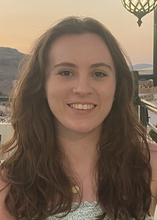
Lucy Mosscrop is a final year PhD student in the group of Professor John Tregoning at Imperial College London, co-supervised by Professor Maria Zambon (UK Health Security Agency/UKHSA) and Professor Peter Openshaw (NHLI, Imperial College London). Her work is supported by the Health Protection Research Unit in Respiratory Infections in collaboration with UKHSA.
Lucy’s research focus is on respiratory syncytial virus (RSV) specifically the fusion or F protein and how it has evolved and may continue to evolve as new interventions are implemented. As part of this work, she has collaborated extensively with UKHSA to help set up an improved RSV whole-genome sequencing assay (WGS) which has since been used to sequence over 1000 RSV-positive clinical samples from the UK (data available on GISAID). She is using this surveillance data to screen for potential RSV monoclonal antibody resistance mutations and test the biological consequences of these changes via reverse genetics systems. Ultimately hoping to establish a pipeline of surveillance, phenotyping and continuous monitoring.
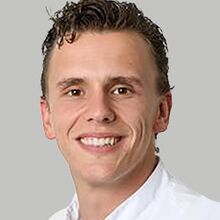
Nationality: Dutch
Position: Intensivist, Spaarne Gasthuis, Amsterdam, The Netherlands; and Senior Scientist, Erasmus MC, Rotterdam, The Netherlands
Research fields: Special interest in acute care and infectious diseases
ESWI member since 2016
Marco Goeijenbier completed his Ph.D. in virology, focusing on "Haemostasis and Virus Infection," at Erasmus University Rotterdam in 2015. He currently serves as a specialist in acute internal medicine and critical care at Spaarne Hospital in Haarlem, The Netherlands. His expertise spans various aspects of infectious diseases, particularly in critical care medicine and viral infections. In addition to his clinical work, Goeijenbier holds a research position at Erasmus MC in Rotterdam, where he mentors PhD students exploring critical care medicine and viral infections. His research interests focus on severe acute respiratory infection (SARI) pathogenesis, epidemiology, and their interaction with the coagulation system.
Some of Goeijenbier’s most published articles include:
- Presence of procoagulant peripheral blood mononuclear cells in severe COVID-19 patients relate to ventilation perfusion mismatch and precede pulmonary embolism
- Determinants of vaccination uptake in risk populations: A comprehensive literature review.
- Benefits of flu vaccination for persons with diabetes mellitus.
- Early Patient-Triggered Pressure Support Breathing in Mechanically Ventilated Patients with COVID-19 May Be Associated with Lower Rates of Acute Kidney Injury
Dr. Goeijenbier is ESWI’s lead member and Chair in the Influenza Diabetes Community (IDC). The IDC connects leading diabetes, patient, scientific, and professional organizations around the common aim of protecting persons living with diabetes from influenza and other viral respiratory diseases like COVID-19.
Starting January 2023, Dr. Goeijenbier has taken on the role of Chair of Medical Research and Education at Spaarne Hospital. Furthermore, since January 2024, Marco is the Editor in Chief for Nature Springer Tropical Diseases, Travel Medicine, and Vaccines.
- If you do not test, you will not know - a focus on COVID-19
- Essential skills and career prospects for early career scientists
- Uncovering the Contrasts and Connections in PASC: Viral Load and Cytokine Signatures in Acute COVID-19 versus Post-Acute Sequelae of SARS-CoV-2 (PASC)
- Can vaccinated individuals still get COVID?
- Is it dangerous to get an influenza and COVID-19 vaccine at the same time?
- Presence of procoagulant peripheral blood mononuclear cells in severe COVID-19 patients relate to ventilation perfusion mismatch and precede pulmonary embolism
- Burden of acute respiratory virus infections
- The Ninth ESWI Influenza Conference: Highlights
- The bidirectional relationship between influenza and diabetes mellitus
- Burden of disease - Long-Covid and other post-infection syndromes
- Virus infections, blood clots and bleeding
- Spotlight on the burden of flu for people living with diabetes
- COVID-19 Treatment and Medication
- Influenza in persons living with diabetes: Pathogenesis and prevention

